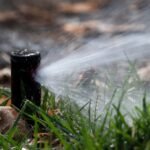Farming for the Blue River: A Solution to Nitrate Contamination
Nitrate concentrations exceeding EPA drinking water standards are a major concern in groundwater wells across Nebraska, posing a threat to both human and habitat health.
In response to this issue, the Big Blue River watershed in southeast Nebraska is the focus of a new program by TNC in 2023. This region, known for its high levels of nitrate contamination, will be targeted by the Farming for the Blue River Project. The goal of this initiative is to reduce freshwater nutrient pollution by collaborating with farmers and implementing effective nutrient management practices on their farms.
TNC and its partners will provide financial and technical assistance to farmers in the area. By working together, they will create customized nutrient management plans based on the latest scientific research and the unique operational circumstances of each farm.
The abatement of freshwater nitrogen pollution will have a positive impact on both humans and the environment. Groundwater supplies 90% of Nebraskans’ drinking water and nearly 99% in rural areas. By reducing nitrate contamination in the water, the program aims to mitigate the potential health risks associated with consuming nitrate-contaminated water, such as increased cancer rates, adverse birth outcomes, and other health issues.
Additionally, reducing fertilizer application will bring financial benefits to farmers. It is estimated that over-fertilization costs Midwest farmers up to $485 million annually. By implementing efficient nutrient management practices, farmers can save money and increase their profitability.
Upon the completion of this program, TNC will share the valuable insights gained, with the aim of scaling up the solutions statewide and even beyond Nebraska’s borders.



